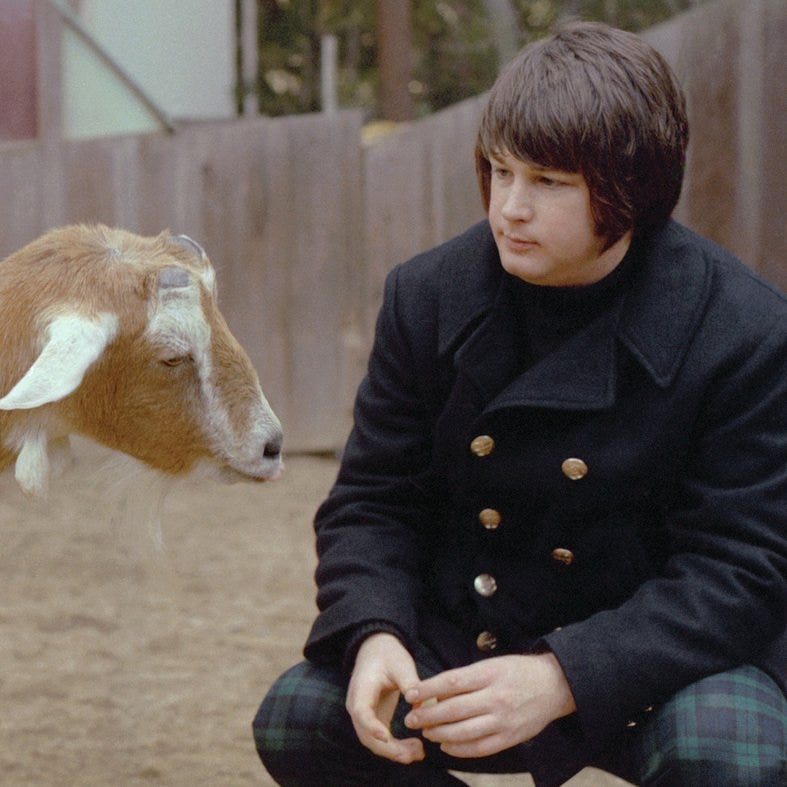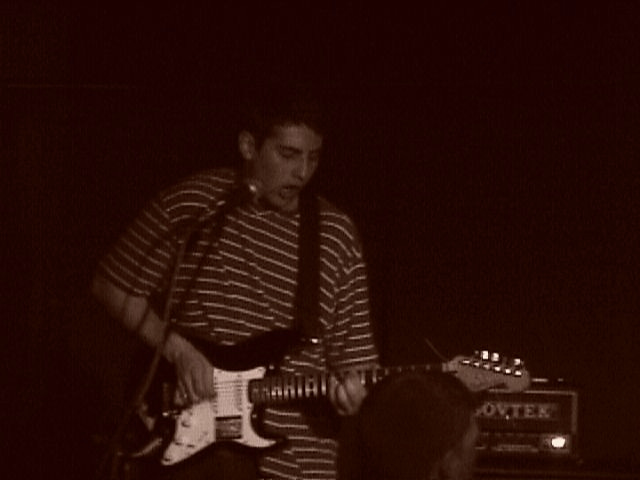Pet Sounds, Punk Shows, and the Architecture of Obsession
How a former punk show promoter and ex-musician found his creative roots in Brian Wilson's layered chaos, and what it still teaches about building under pressure.
I. Music That Hits Before You Understand It
The first time I felt Pet Sounds, I was maybe three or four. My dad had Beatles, Dylan, Stones records on all the time.
But this one - this one was different. It sounded like it didn’t belong to any era.
You couldn’t pin it down. The cover didn’t make much sense to me, and the songs were almost otherworldly. "Wouldn’t It Be Nice" laid out a life you hadn’t lived yet. "God Only Knows" felt like the cosmos. Pet Sounds didn’t just teach me to hear harmony, it taught me how to transmute feeling through changes, through movement, through voice.
II. Punk Rock Meets Pocket Symphonies
In the punk scene, vulnerability wasn’t currency. But Brian’s influence still found a way in. I was that kid in the Madison dorms with the Beach Boys box set playing nonstop, even though nobody else understood it. I was trying to figure out how to channel that kind of songwriting into something harder, sharper.
Our band Bicycle Rider didn’t get there on the first record, but on the second one, All Traffic - I started to synthesize those worlds. The bridge of "Looking for a Kiss"? That’s eight or ten vocal layers. Pure Wilson.
III. Studio as Startup
[Bicycle Rider, Green Bay, WI, 1998]
I learned to build songs the way Brian built tracks. I was producing records while most people were skipping class. I worked with Matt Allison, same month and space as The Broadway's Broken Star and Sarge's Glass Intact. Later, co-produced with power-pop legend Adam Schmitt. These weren't just sessions; they were design labs. I'd studied how voices moved on Beach Boys records in 10th, 11th grade. I stacked harmonies on Looking for a Kiss, or even the early Bicycle Rider stuff. Even my solo tracks like "We Nearly Didn't Know" - those backing vocals? Straight from Wilson’s playbook.
IV. Dennis Wilson, the Spiritual Compass
Dennis, Brian’s brother, wasn’t a footnote. He was the spiritual one. He wasn’t perfect, or polished.
But full of life and tragedy. He struggled, he broke, and he still made something beautiful. People dump on his drumming but I think it was perfect.
I see a lot of Dennis in myself, especially when I think about the two unreleased records I made. 5667 Carberry was about divorce. The other one—The Black Swan—was about learning how to be a fucking adult in relationships, emotionally speaking. That one took a while to figure out. Still is.
V. Seeing Brian Live (Milwaukee, 2001)
When I saw Brian live, he was around 60. Jeff Foskett was in the band then. The band kicked ass. Tight, polished, maybe a little too polished, but Brian looked better than expected. Talked a bit. Seemed to enjoy himself. It felt like a second wind, not a farewell tour. You could tell he was happy to still be creating. That night taught me you don’t have to be in your prime to still make something that matters.
VI. A Playlist, A Mirror
I made a playlist of Brian’s deep cuts, songs I think he loved. It’s not for casual fans. It's for people who want to see him as the guy on the piano bench. The guy who moved voices around until they said what he couldn’t. There are three videos that tell a single story if you watch them in sequence. They’re adorable. And telling. The playlist is here: Brian Wilson: In Memory. Most of it is in Dolby Atmos, so it’s really mind-blowing in headphones.
I don’t build records now - I help build investment firms. But Brian’s method still tracks: obsess over structure, lead with feeling, layer until it clicks.






